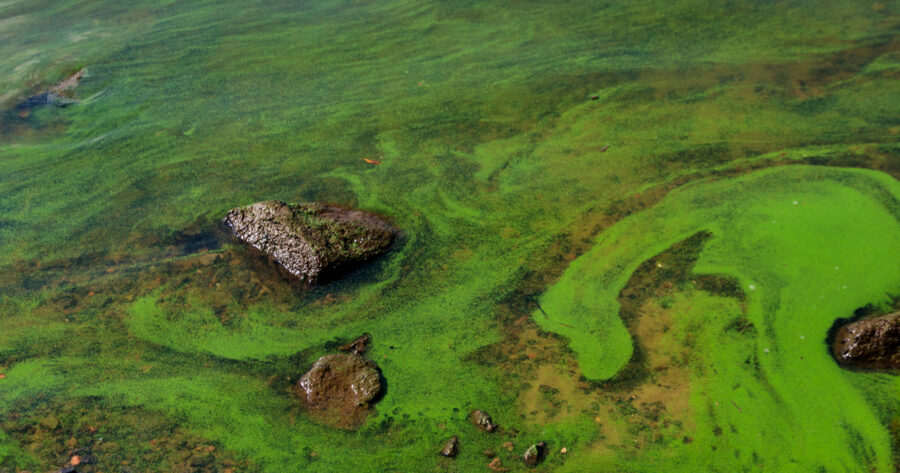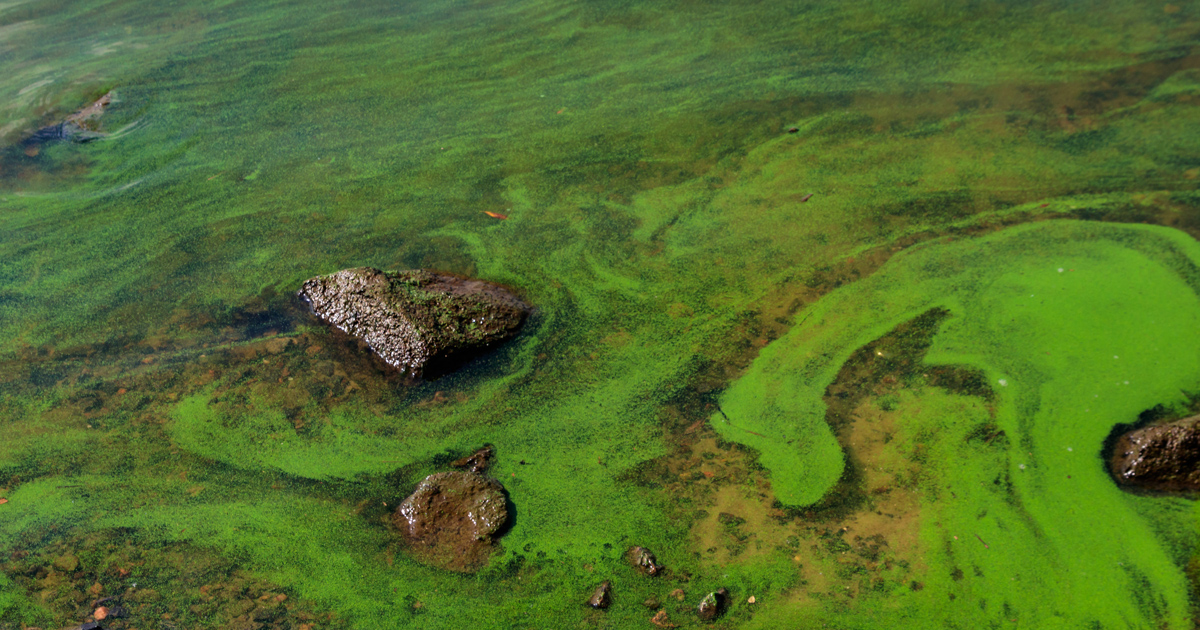
Alert Issued for Harmful Algae Bloom in Lower Olifants River
South African National Parks (SANParks) scientists have provided an ‘alert’ saying there appears to be a “rapid build-up of a potential harmful Algal Bloom in the lower Olifants River”. The build-up is taking place at a section where the river flows through a deep gorge with a large Nile crocodile population, before it enters the […]

South African National Parks (SANParks) scientists have provided an ‘alert’ saying there appears to be a “rapid build-up of a potential harmful Algal Bloom in the lower Olifants River”. The build-up is taking place at a section where the river flows through a deep gorge with a large Nile crocodile population, before it enters the large Massingir Dam in the Republic of Mozambique.
Scientists have been monitoring water quality effects in the area on the health of the aquatic ecosystem. They say recent satellite observations are suggesting this rapid build-up.
The scientists have embarked on a detailed monitoring program to assess the impacts from this algal bloom on the crocodile population and the aquatic ecosystem more broadly.
What is causing the rapid build-up of Algal Bloom?
“These conditions have arisen due to a combination of several factors including very high lake levels in Massingir Dam following the good summer rains, increased water clarity allowing mono-cellular algae to access sunlight and build up large biomass; high nutrient inputs (pollution) from upstream catchment areas; and the warm early winter temperatures experienced that increase surface water temperature,” SANParks said in a statement on Wednesday.
SANParks is keeping park and catchment management partners informed in South Africa and Mozambique, and says that through this collaboration it intends to mitigate negative impacts of this event on the health of ecosystem of the Olifants River and those that depend on its resources downstream.
Head of Conservation and Area Integrity Management in Kruger National Park, Danie Pienaar says: “We have learned valuable scientific lessons about the mechanisms giving raise to Pansteatitis outbreaks and the impact on the park’s crocodile population following the outbreak of this disease in 2008-2009. This time we are at least forewarned and will do proactive monitoring and research to track the situation together with our Mozambican colleagues.”
